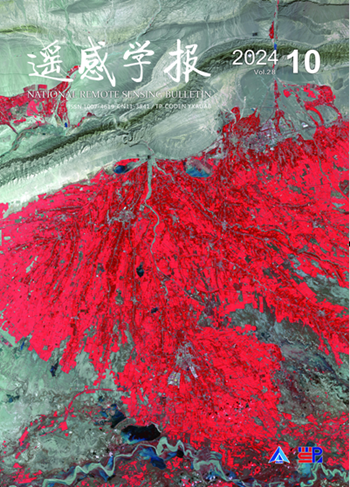Automatically Monitoring Impervious Surfaces Using Spectral Generalization and Time Series Landsat Imagery from 1985 to 2020 in the Yangtze River Delta
引用次数: 19
Abstract
Accurately monitoring the spatiotemporal dynamics of impervious surfaces is very important for understanding the process of urbanization. However, the complicated makeup and spectral heterogeneity of impervious surfaces create difficulties for impervious surface monitoring. In this study, we propose an automatic method to capture the spatiotemporal expansion of impervious surfaces using spectral generalization and time series Landsat imagery. First, the multitemporal compositing and relative radiometric normalization methods were used to extract phenological information and ensure spectral consistency between reference imagery and monitored imagery. Second, we automatically derived training samples from the prior MSMT_IS30-2020 impervious surface products and migrated the surface reflectance of impervious surfaces in the reference period of 2020 to other periods (1985–2015). Third, the random forest classification method, trained using the migrated surface reflectance of impervious surfaces and pervious surface training samples at each period, was employed to extract temporally independent impervious surfaces. Further, a temporal consistency check method was applied to ensure the consistency and reliability of the monitoring results. According to qualitative and quantitative validation results, the method achieved an overall accuracy of 90.9% and kappa coefficient of 0.859 in identifying the spatiotemporal expansion of impervious surfaces and performed better in capturing the impervious surface dynamics when compared with other impervious surface datasets. Lastly, our results indicate that a rapid increase of impervious surfaces was observed in the Yangtze River Delta, and the area of impervious surfaces in 2000 and 2020 was 1.86 times and 4.76 times that of 1985, respectively. Therefore, it could be concluded that the proposed method offered a novel perspective for providing timely and accurate impervious surface dynamics.1985 - 2020年长江三角洲不透水面的光谱概化与时间序列Landsat影像自动监测
准确监测不透水地表的时空动态对理解城市化进程具有重要意义。然而,不透水面的复杂组成和光谱非均质性给不透水面监测带来了困难。在这项研究中,我们提出了一种利用光谱概化和时间序列Landsat图像自动捕获不透水面时空扩展的方法。首先,采用多时段合成和相对辐射归一化方法提取物候信息,确保参考影像与监测影像的光谱一致性;其次,我们从之前的MSMT_IS30-2020不透水面产品中自动提取训练样本,并将参考期2020不透水面的表面反射率迁移到其他时期(1985-2015)。第三,采用随机森林分类方法,利用不透水面的迁移表面反射率和每个时段的不透水面训练样本进行训练,提取时间独立的不透水面。采用时间一致性检验方法,确保监测结果的一致性和可靠性。定性和定量验证结果表明,该方法识别不透水面时空扩展的总体精度为90.9%,kappa系数为0.859,在捕获不透水面动态方面优于其他不透水面数据集。结果表明,长江三角洲不透水面面积呈快速增长趋势,2000年和2020年不透水面面积分别是1985年的1.86倍和4.76倍。因此,该方法为提供及时准确的不透水面动力学提供了新的视角。
本文章由计算机程序翻译,如有差异,请以英文原文为准。
求助全文
约1分钟内获得全文
求助全文
来源期刊

遥感学报
Social Sciences-Geography, Planning and Development
CiteScore
3.60
自引率
0.00%
发文量
3200
期刊介绍:
The predecessor of Journal of Remote Sensing is Remote Sensing of Environment, which was founded in 1986. It was born in the beginning of China's remote sensing career and is the first remote sensing journal that has grown up with the development of China's remote sensing career. Since its inception, the Journal of Remote Sensing has published a large number of the latest scientific research results in China and the results of nationally-supported research projects in the light of the priorities and needs of China's remote sensing endeavours at different times, playing a great role in the development of remote sensing science and technology and the cultivation of talents in China, and becoming the most influential academic journal in the field of remote sensing and geographic information science in China.
As the only national comprehensive academic journal in the field of remote sensing in China, Journal of Remote Sensing is dedicated to reporting the research reports, stage-by-stage research briefs and high-level reviews in the field of remote sensing and its related disciplines with international and domestic advanced level. It focuses on new concepts, results and progress in this field. It covers the basic theories of remote sensing, the development of remote sensing technology and the application of remote sensing in the fields of agriculture, forestry, hydrology, geology, mining, oceanography, mapping and other resource and environmental fields as well as in disaster monitoring, research on geographic information systems (GIS), and the integration of remote sensing with GIS and the Global Navigation Satellite System (GNSS) and its applications.
 求助内容:
求助内容: 应助结果提醒方式:
应助结果提醒方式:


